|
In our neighborhood in Pasadena, every child 1st through 8th grade is expected to do a science fair project. For middle school students, their projects are entered in school, district, and county fairs, and the elementary students do projects to prepare for the larger middle school projects. 6.5 years ago when I moved to Pasadena, I barely heard a whisper about science projects. Turns out, for those first 2-3 years, fewer than a quarter of the students from our area actually even attempted a project (mind you, these projects usually counted for virtually a whole reporting period’s science grade). So I was just as surprised as anyone when one of the 6th grade boys I was working with at the time said, “I have a science project for the science fair, and I want to build a hovercraft.” First off, this is the first I’ve ever heard of a science project? And secondly, you want to build a what?
That was the first year of what has become three years of aggressive intervention on behalf of our staff to help our students learn that science can not only be fun, but that these projects allow students to plan a long-term project and put in a great deal of hard work that results in tremendous pride. Our staff began to use this project as a time to teach students how to plan – sitting down with them and marking up calendars for the various components of the projects. Students learned what it meant to sacrifice for their school work, often times needing to give up soccer games or time with friends to spend an entire Saturday holed up in a garage. Students also learned great perseverance, that even the coolest of projects often times involved hours of tedious preparation or data analysis. The staff have gone to great lengths each year to be innovative in helping conceptualize project ideas, leading to projects such as bottle rockets, flammable edible dust, fireballs, catapults, and hovercrafts. The turnaround in three years has been nothing short of miraculous. That first year, the hovercraft not only won at the school science fair but placed first at the district science fair. That sparked greater interest from the rest of our students and began to break down the idea that great academic success could never be achieved by a student from our area. Fast forward to this year, and not only did every Northwest Neighbors’ student who submitted a science fair project place in their school competition, but 4 of the top 9 spots at the district competition went to these students! Academic achievement has never, nor will ever be the standard by which we measure the value of our students. However, education and academic achievement are both one of the greatest options for creating opportunities and lifting our youth out of poverty, as well as the major area where youth from Northwest Pasadena feel like they are at a severe disadvantage and experience the greatest disparity with youth from more resourced and educated areas. However, what we’ve seen in three years of science projects is that God is more than capable of breaking down even these most intimidating of strongholds. Our students have gone from not even turning in projects to expecting themselves to produce high enough quality work to place at the district competition. Even after the results were announced, students were quick to discuss what projects they would do the next year, or how they could have improved their projects from this year. This reflects not just the physical achievement of a medal, but the breaking of a mindset that has long been perpetuated in Northwest Pasadena that students should not expect great academic success compared to peers in more privileged areas, that school is simply a necessary evil, and that the only way students from this area can break out of poverty is through athletics or more vocational training. Would you join us in praying that God continues to tear down this stronghold across all academic areas and that our staff would continue to be attentive to the Spirit and walk alongside God in the transformative work He longs to do in Pasadena?
0 Comments
Northwest Neighbors has taken enough trips with youth that we’ve learned to expect God to show up in the most unexpected places. However, it was the last thing on our minds that a football game would become the most defining moment of our time at camp.
The Northwest Neighbors youth decided that this year, they were going to grab camp by the horns, step out of their comfort zones, and take in as much as camp had to offer. Towards those efforts, they put together a team to join the flag football tournament. Games were spread out over two days, double-elimination style. In the first game of the tournament, the youth had a fantastic time. They played (and won against) a team that was competitive yet gracious, and were able to learn how to begin playing as a team, supporting one another on and off the field, and taking pride in their play and their attitudes. In the second game, however, our anticipated trajectory for the weekend took a sharp turn. As soon as our youth stepped on the field, the other team began to viciously trash talk them. we immediately pulled our team aside and challenged them to take the high road, to stay above resorting to insults, and to let their play do the talking for them. However, as the game progressed, the trash talking disintegrated into cursing and personal insults, including threats of bodily injury to not only players on the field, but also to our youth cheering on the sidelines, and berating of youth on both sides for their bad play. While this behavior would have been troubling enough coming from youth, the majority came from chaperones and staff on the opposing team. Though the game felt like it was dissolving into chaos, our youth could not have made us prouder. They kept their heads on straight, paid attention only to our staff’s instructions, and played lights out against a team that was on average a foot taller and mostly high school varsity football players. The team took the game into overtime, only losing on a great kick-off return by the other team. The other team deeply rubbed the win in our youth’s faces, even physically running over multiple of our youth in their desire to celebrate. As staff watching this unfold, we were intensely emotional - horrified, angry, deeply concerned, and proud all at once. We quickly ushered our team off the field and back to our cabins, as a number of our youth were physically restraining themselves and each other from getting into fights. In our conversation with the youth, we were very clear to express our pride in them for handling themselves with maturity and control, as well as communicate that adults must and should be held to higher standards. Our youth were wronged and sinned against, and their pain was justified. We needed our youth to know that in the ways they felt helpless and angry, we were their allies and advocates and would do everything we could to set things right. Yet even in their righteous anger, we challenged them to turn the other cheek, to forgive, to bring their pain and anger to God, and to not fall into sin themselves. As the day and weekend progressed, we continued to stay in conversation with our youth. We offered our group as a safe place to express anger and frustration, yet wanted to be clear that anger and frustration was not the end goal. Our staff spoke with the camp staff to address the situation (as a side note, they were wonderfully responsive), and made it clear to our students that we were taking the situation very seriously and trying to address things with adults in charge. We gathered later that night to pray as a group, and in a way that only the Holy Spirit can work, our slightly hodgepodge group of youth (3 different Bible studies that do not interact regularly) became a family. Through their shared experience and shared pain, the group learned to love and support one another, and as one youth prayed: “Thank you for these friends…well, they’re basically family.” And while the pain didn’t go away, nor did the youth ever receive an apology, it was clear that our youth were able to come out of a horribly unfair and hurtful situation with deeper respect, love, and understanding of themselves, each other, and God. For the staff, we could not have been more encouraged by what we witnessed of our youth this weekend. First and foremost, we were blown away by the level of trust our youth had in us as their leaders. For urban youth who are used to being let down, used to solving their own problems, they trusted us to be their advocates, to understand and feel their pain, and to help them engage the situation in a better way than with their fists. We felt so personally affirmed that these youth trust our love for them. And beyond that, we saw a fire lit in our youth to “be better.” Many of them have been wrestling through Bible studies this year with who God is, but also who He calls us to become and what it means to sacrifice for the Kingdom. We could see the youth wrestling with how following Jesus goes against their nature and what their families and friends may teach them. They were given a very difficult situation that pressed them into making hard decisions, and they went through a real process of figuring out what Jesus actually means to them. One youth even expressed her guilt that the way she had vented about the situation was wrong and that she was thinking negative thoughts and wanted to figure out how to stop. Talk about self-awareness and a desire to make Jesus Lord in her life. At the end of the trip, one of the youth came up to us and said, “You know what’s funny…that group’s kids have actually started being really nice towards us – I think we sort of made friends with some of them.” We asked what he thought would have happened if they had fought back, and he said, “We would’ve been kicked out of camp, but I also don’t think we could have ever become friends.” In his simple reflection, he expressed following Jesus in a nutshell – to be a different people, to respond with love and forgiveness instead of retribution and anger, to love and support one another in our pain and our struggles, and to encourage each other to seek Jesus in any situation. Praise Jesus that He turned what could have been a devastating, violent situation into one where our youth experienced the Kingdom of God. Practicing science fair presentations during tutoring tonight. Our 8th grade boys are becoming excellent public speakers!
Teaching Bible study to youth seems to usually fall under three categories: 1) Shoot…it’s _____ again? There’s Bible study tonight… 2) These youth are driving me crazy – what passage can I choose to convict them and get them to be less annoying? 3) God shows up through Scripture, and I am so privileged to have the opportunity to share it on a regular basis.
I wish I could say I always approached preparing Bible study from the third perspective, but alas, the craziness of life seems to distract me enough that the first two show up regularly enough. Yet when I’m most ready to throw in the towel and let myself be convinced that having Bible study to adolescents is nothing more than a glorified hangout with a cute Bible story tossed in, God reminds me of the compelling nature of Him and the Scriptures. This past year has been filled with a number of these moments, but none more stark than this past week. While it can be easy for many of us who grew up in the church, or who spent 4 years in college inductively studying books of the Bible, to glance at a passage (particularly from the Gospels) and feel like we know it like the back of our hands, it becomes so apparent that given fresh eyes, the Jesus of the Gospels is as compelling on the 20th read-through, as he is on the 1st. With the beginning of Lent, the high school boys’ group studied the baptism of Jesus, the 40 days in the desert, and the temptations from satan. This group of boys, maybe as much as myself, had heard this story to some degree, remembered the temptations bit, and were quick to want to rush through the text. So in my effort to help them unearth more of the text, we sat in what it looked like for Jesus to have the heavens open up and for God’s voice to speak to him (this epic, glorious moment), to then deny himself everything and intentionally choose to fast for 40 days to gain more clarity and an even more intimate relationship with God. That after this, he was not just tempted to use his own power, but rather had to choose into saying that his relationship with God mattered more than any of his physical needs. And in that denial, God then sent angels to care for his every need, without any asking from Jesus himself. There was a moment in the study where the boys’ eyes brightened, they got really quiet, and you could hear the “ohhhh…”’s quietly echo through the room, where this realization that God actively and completely provides for our needs if only we focus on our intimacy with him first became very real. That this wasn’t just some nice story about Jesus being in the desert and how He of course resisted satan because He’s God, but that this was a real story of a man who gave up everything for the sake of knowing God more deeply and that we are challenged to do the same. It is moments like these where God reminds me of how leading these youth is not simply for their transformation, but that through looking at Scripture through their eyes, I am myself reminded of my own need for Jesus, of my own lack of faith, of God’s endless love for me. That their “oh’s…” become my “ohhhh” of all the ways I tend to skim past God, the ways I mistake my head knowledge for intimacy, the ways that I forget that my development and relationship with Jesus are more important to God than any “ministry” I will ever do. And so it’s nights like these where I’m reminded that there’s a 4th paradigm to teaching Bible study: That God loves me and desires for me to know Him deeply and leading youth into Scripture is an opportunity for me to slow down and see God through fresh lenses. |

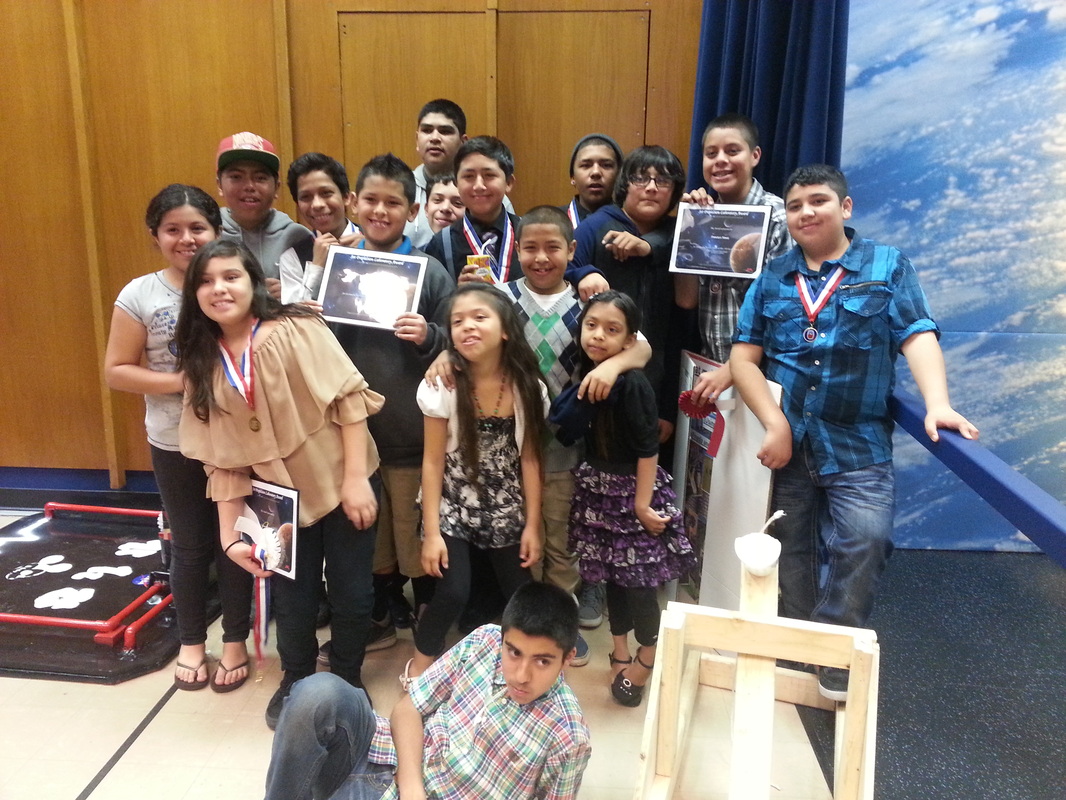
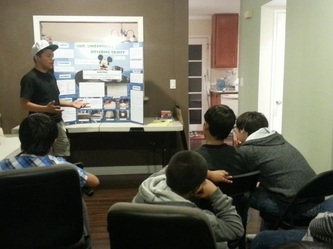
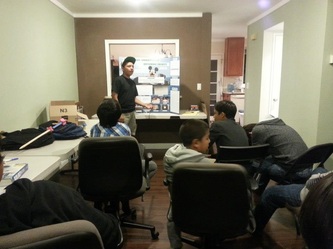
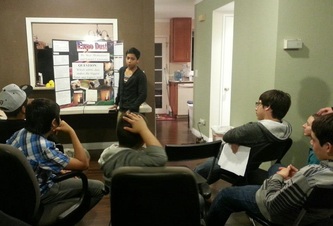
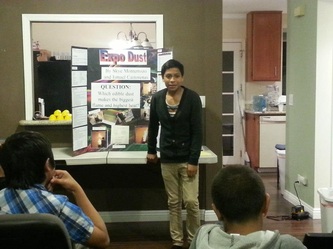
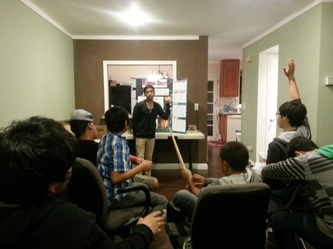
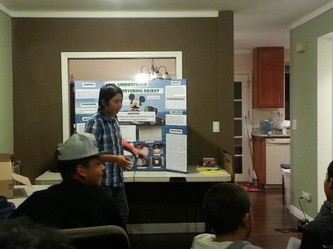
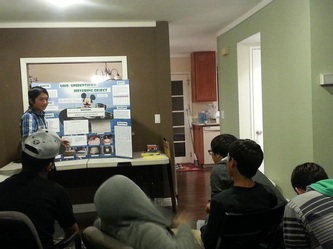
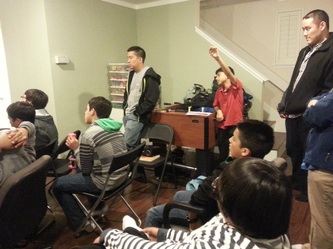
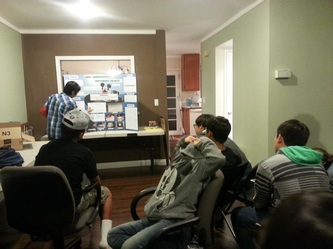
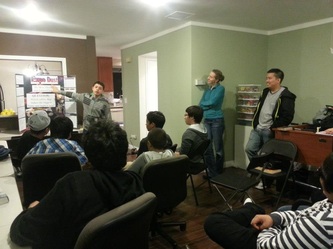
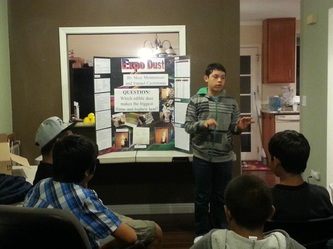
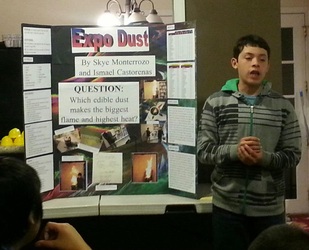
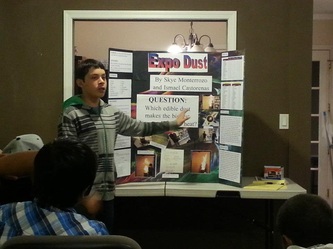
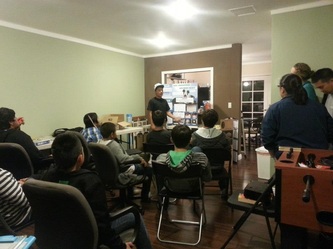
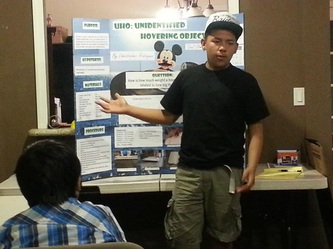
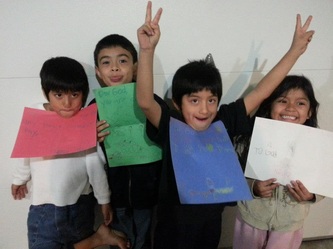
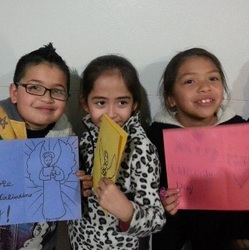
 RSS Feed
RSS Feed